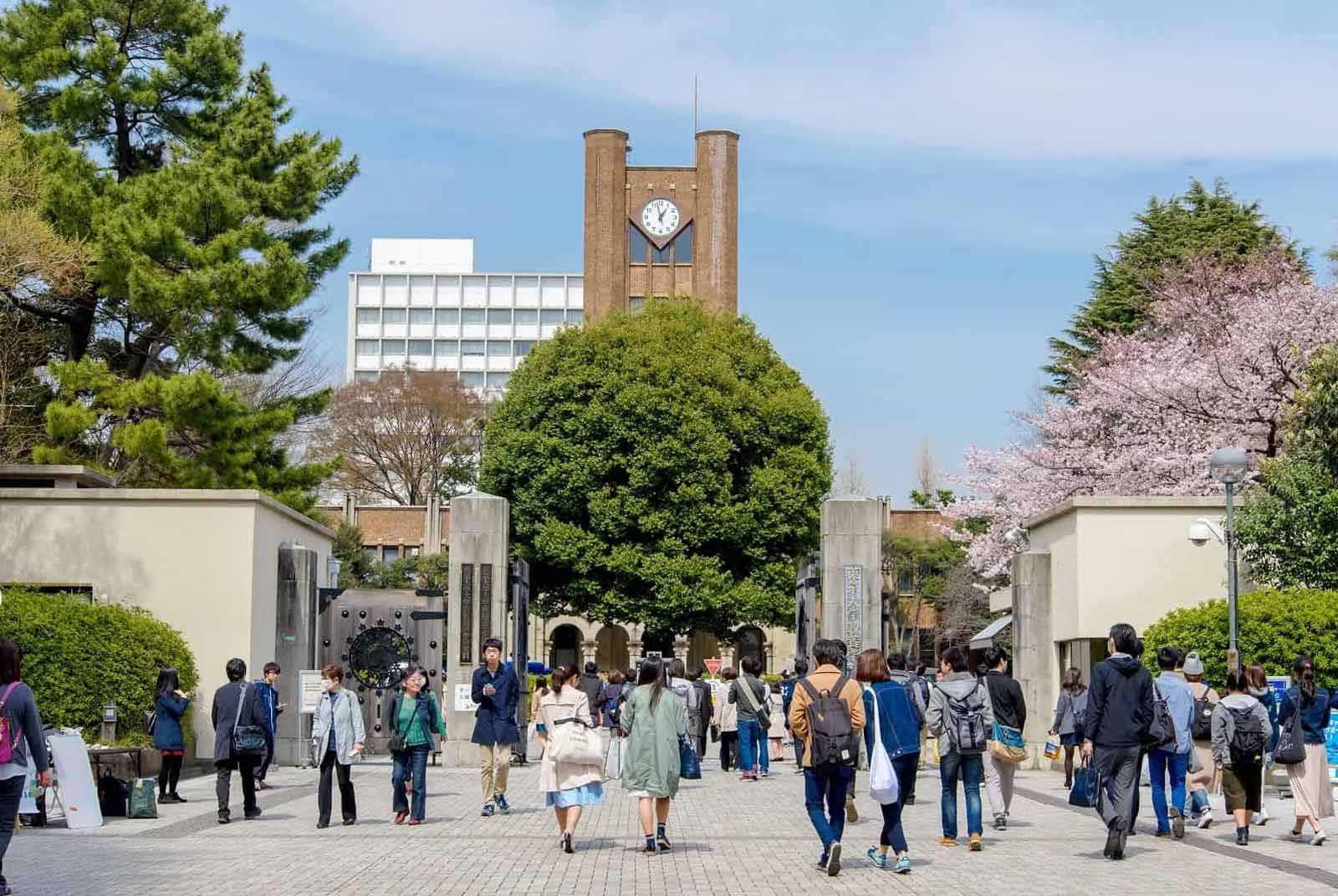Having lost Hong Kong, Chinese reunite in Tokyo

Source:shutterstock
The Chinese lost the space for thinking in Hong Kong, but found a new world in Tokyo. Why does this happen in Japan rather than in the United States?
Views
Having lost Hong Kong, Chinese reunite in Tokyo
By Annie Zhang JiepingFrom CommonWealth Magazine (vol. 781 )
The lecture hall at the University of Tokyo is packed with over 200 people. It is a Chinese-language lecture, and attendees continue to pour in.
It feels surreal to stand at the lectern. I am not a renowned author, and I have not even published a single book. My career has been in media and entrepreneurship, known mainly within my professional circles.
My presence on Chinese social media is practically nonexistent — my Weibo account was banned in 2012. After the events in Hong Kong in 2019, I only maintained communication with close family through WeChat.
As I look at the familiar yet strange faces and accents before me, it suddenly dawns on me that this might be the first time I have spoken to such a large audience from China.
The Scattered Meet in Tokyo
It is also clearly the first time they have listened to this sort of content, hearing from someone from China and all the experiences they had in Hong Kong and Taiwan.
The lecture seemed to never finish, and by 9:00 pm, several ladies were grabbing my hand, looking into my eyes, and saying, “Oh my, how did we never know about you?”
I know that they do not really mean “me.” Instead, they are saying how come they - who surfed WeChat and Weibo daily - had never known about the reports and the stories about China that I and my associates wrote over the past nearly 20 years.
In the summer of 2023, I participated in three Chinese-language lectures at the University of Tokyo as both a keynote speaker and a panelist, all in similar settings.
This is Tokyo. So why are all these Chinese speakers meeting each other here?
Hong Kong’s Shadow in Tokyo
Before starting the lecture, I asked the audience how many had been in Japan for less than three years, and approximately 70 percent of the audience raised their hands. Later, I learned that many had left China only after the pandemic.
Numerous young people study abroad in Tokyo, and mothers and fathers also “fled” Shanghai with their young children during the lockdown. Establishing businesses or finding jobs in Japan, they reside there on various types of visas.
Since the spring, University of Tokyo Professor Tomoko Ako has spearheaded a series of Chinese-language lectures featuring visiting scholars in Japan and scholars passing through, such as Qin Hui, Fu Guoyong, and media personalities Ma Guochuan, Yuan Li, and Li Yino. I was part of this series as well. The latest addition was Hong Kong media scholar Li Lifeng in late August.
The lecture series has prompted numerous netizens to lament that the University of Tokyo is like “the University of Hong Kong in exile,” exuding an atmosphere that only lectures at the University of Hong Kong used to have.
In the past, Hong Kong served as a "safe haven" within the Chinese-speaking world, where discussions that could not take place in China, went unnoticed in Taiwan, or were ignored in Singapore and Malaysia, could all take place.
Now, the National Security Law hangs over Hong Kong, transforming it into a new Hong Kong within the Guangdong–Hong Kong–Macao Greater Bay Area.
But where will those Chinese-language thinkers and creators, who increasingly have nowhere to discuss their ideas and creations, who have stashed away their works in desk drawers, find their audience and make connections?
Tokyo is surely among the most culturally receptive places.
Visa status is a significant factor. Japan may not be an immigrant country, but for individuals from the PRC, Hong Kong, or Taiwan, there are always ways to secure short-term visas for visits, studies, work, or investing. Establishing long-term or even permanent residence on these foundations is not out of the question.
Several Chinese scholars who have lived or taught in both the United States and Japan told me they find the community of Chinese students in Japan to be different.
As long-term overseas study in America is very costly, and the proportion of affluent children of government officials and business people is very high, business and law schools are popular choices among Chinese students in the United States.
Students from more modest backgrounds mostly pursue studies on scholarships and study the sciences for good employment prospects after graduation. Students with backgrounds in the hard sciences far outnumber those studying humanities and history.
In contrast, Chinese students in Japan are more diverse, comprising children of more rank and file backgrounds, students from outside the elite institutions, and a greater number of arts, humanities, and social sciences students.
Their modesty and enthusiasm for seeking knowledge are common impressions shared by many speakers who have interacted with the Chinese students in Tokyo.
This past August, two new Chinese-language bookstores even began pilot operations in Tokyo. As far as I know, there are at least two or three other bookshops specializing in used Chinese books, with additional cafe bookshops in the planning stages and expected to open in the latter half of the year. Hosting Chinese- and Japanese-language exchange lectures is one of the shared objectives of these venues.
Historically, Tokyo's modern intellectual resources and the people who came here to engage in exchanges helped shape the birth of modern China. A century later, amidst regional political transformation, will Tokyo replace Hong Kong’s former role to become an intellectual bastion for the Chinese-speaking world?
Have you read?
- Exhausted post pandemic China dreams of rural life
- Hong Kong: A City on the Brink
- Decoding the Deep-Seated Reasons Behind the Awakening of the Hong Kong People
Translated by David Toman
Uploaded by Ian Huang






